On 13th June 2018, the UK Government announced the plan for the future, dubbed ‘Global Britain: Delivering on our International Ambition‘.
The stated purpose of this plan, was to take the changes brought about by Brexit as a chance to “efficiently maintain our global standing”. Focus and emphasis was placed on the idea of “championing the rules-based international order and demonstrating that the UK is open, outward-looking and confident on the world stage”.
This article is the opinion of the author and not necessarily that of the UK Defence Journal. If you would like to submit your own article on this topic or any other, please see our submission guidelines.
A key component of this idea is that ‘rules-based international order’, which generally speaking has meant a combined diplomatic and military stance and presence across the world.
The 2020 Integrated Defence Review (which ended up delayed by the COVID-19 pandemic and other factors), lead to a paper released earlier this year called: ‘Global Britain in a Competitive Age: The Integrated Review of Security, Defence, Development and Foreign Policy’ (available here) which set out the near future for HM Armed Forces and the wider Foreign Policy changes that had been long-expected.
As mentioned in my previous article for the UK Defence Journal, a key component of this Integrated Review was the announcement that the Royal Navy would still receive 5 Type 31 Frigates, 5 new Type 32 Frigates and that work would begin on a future Type 83 Destroyer class. While these classes are intended mainly for the Defence and Security aspect of the review, plans for a class of Littoral Operations vessels, and more recently the announcement of a new national flagship are aimed more at the Foreign Policy aspect of the review.
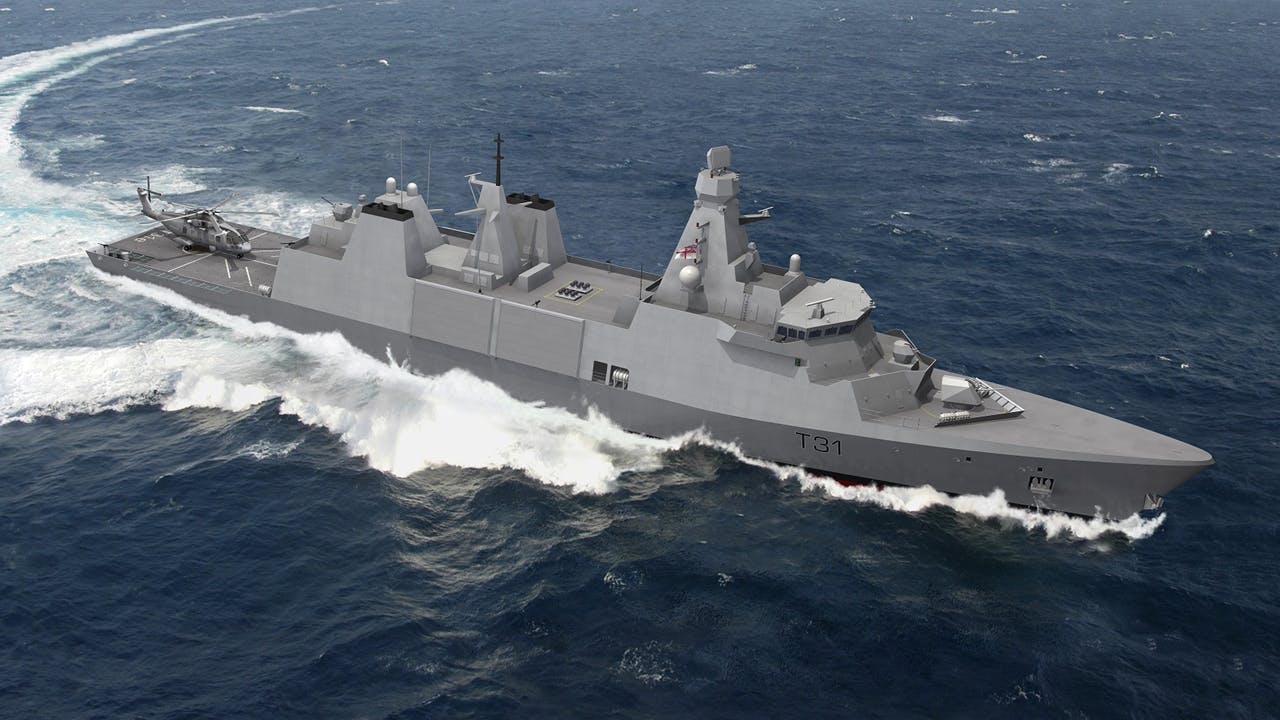
And that’s the interesting part. As much as new warships are welcome, and much needed following decades of cuts to the fleet and wider Ministry of Defence capabilities, it is the foreign policy aspect of the review that needs further looking into.
The recent Trump administration in the USA held a very strong stance for foreign policy matters, arguably restraining certain dangerous states and state-actors through military presence, sanctions and covert operations. The new Biden administration has been somewhat more subdued in its approach to matters that dominated the previous administration. Rather than calling out Iran and North Korea for their respective nuclear weapons programmes, the Biden administration has sought to try and negotiate with Iran, and has seemingly left North Korea mostly to its own devices, instead focusing more on relations with Russia, whose’ President Vladimir Putin told reporters this week that relations between Russia and the USA were “the worst they have been for some time”.
Of course, nuclear weapons proliferation isn’t the only topic. The last few years has seen some infamous cyber security incidents, notably the hacking of the NHS IT systems back in 2017. Also notable is the increasing use of biochemical weapons like the Novichok poisoning in Salisbury in 2018 and subsequent revelations of Russian involvement in a number of incidents across Europe, especially the 2014 Czech Republic weapons depot explosion.
The UK is stepping up to these issues to an extent. Arguably the biggest issue it has risen to is the area of Cyber Security, with the establishment of the National Cyber Force (NCF) as a specialist unit comprised of personnel from the Ministry of Defence, the Government Communications Headquarters (GCHQ) and the UK’s intelligence services (MI5 and the SIS). The idea behind the NCF is to provide the UK with an offensive cyber capability comprising some 2,000 personnel in light of the increasing use of cyber activities by foreign powers like Russia, China and North Korea. The National Cyber Security Centre (NCSC) continues to work on the UK’s defensive cyber capabilities.
While the cyber aspect is good news, and an increased size to the Royal Navy surface fleet will ensure a visible military presence round the world (with deployments of ships and a permanent forward presence planned in several regions East of Suez), what still isn’t clear is the political intent and planning behind this.
The UK has been vocal about issues around China’s dealings in Hong Kong lately. It has also been fairly vocal about the ongoing issues in Myanmar and China’s treatment of Uighur Muslim groups in Central and Eastern Asia – and this is good and right. The Integrated Review’s stance means that the UK cannot afford to stay silent on these topics, however the UK Foreign and Commonwealth office has been notably less vocal on other matters that affect the “rules-based international order”, notably the ongoing crisis in Venezuela (which you will struggle to find much information about in the mainstream media), Iran’s ongoing behaviour in fuelling issues across the Middle East (e.g. supplying weapons to terrorist groups in Syria, Lebanon, Gaza, Yemen) and as already mentioned, North Korea.
While the regime of Kim Jong-Un has been less prevalent in the media in recent months, the dangers are still present. Trump’s various conferences with the North Korean leader did not succeed in ending the North’s nuclear weapons programme, and as highly-respected submarine expert H I Sutton has noted earlier this year, North Korea continues to work on a submarine-launched ballistic missile capability – meaning the nuclear weapons programme is still a major focus for Kim.
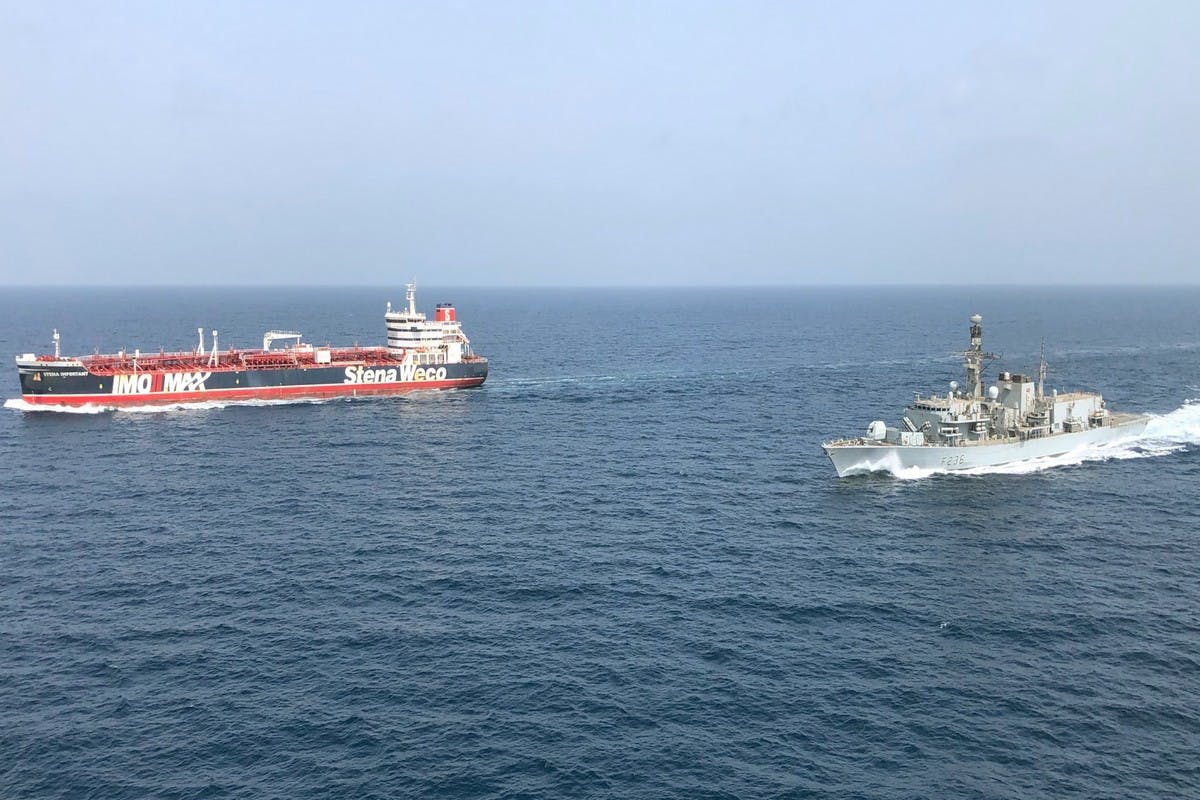
The UK has contributed vessels to a naval task force in the Gulf to help defend against Iranian hijackings, but beyond the occasional joint statement with France and Germany has had little else to say about Iran, possibly due to the ongoing effort to free British-Iranian dual citizen Nazanin Zaghari-Ratcliffe who has been in prison in Iran since July 2019.

The USA continues to be vocal about a range of issues in the aforementioned countries, albeit not as vocal as during Trump’s presidency. The G7 conference being held here in the UK at the time of writing should be an opportunity for the UK to some of the world’s most influential countries and develop a joint plan for foreign policy in the aforementioned trouble spots. With the world still reeling from the effects of the COVID-19 pandemic and economic recovery for all countries a major focus of the talks, PM Boris Johnson will hopefully not forget to look at other issues.
The UK is currently involved in Mali, where the French government (under Op BARKHANE) have been attempting to fight terrorist groups for several years. The UK is also still actively carrying out Op SHADER in Syria and Iraq, fighting the Islamic State terrorist group (ISIL/ISIS/IS/Daesh). Both these missions have received little media attention and risk becoming forgotten issues in much the same way that Venezuela has faded from media attention. The UK will need to either step up involvement in these issues, or at least be more vocal about what is going on – especially with the incoming changes to US Foreign Policy.

In case you hadn’t heard, the Biden administration plan to withdraw all US troops from Afghanistan before the end of 2021. Originally started as Op ENDURING FREEDOM (2001-2014) which became Op FREEDOM’S SENTINEL (2014-present), the mission in Afghanistan formed the core of the US Global War on Terrorism, and Op FREEDOM’S SENTINEL is expected to end on September 11th 2021, the 20th anniversary of the 9/11 terrorist attacks, officially ending the USA’s longest war. Part of the preparations for this withdrawal has involved US and UK forces, working with other NATO allies under Op RESOLUTE SUPPORT to train Afghan troops to deal with the continued existence of groups like al-Qaeda and the Taliban.
As of January 2021, this had led to some 308,000 personnel of the Afghanistan National Defence and Security Forces (ANDSF) being trained to take over day-to-day operational duties.

Some 3,500 US troops and 18,000 military contractors remain in the country as of February, along with some 750 British troops and thousands more from 33 other countries. The problem here is that the fight in Afghanistan is far from over. On 8th June 2021 the ANDSF confirmed that 157 members of the force had been killed in fighting with Taliban and other terrorist groups in the last 24 hours alone. A US withdrawal at this stage may get the US out of the situation on the ground, but it will leave several allied nations still helping the Afghan people in the fight – and the US ultimately recognises that even after they withdraw troops, they will still need to provide air support long into the future.
As mentioned, the UK still has 750 personnel involved in Afghanistan. Primarily there to train ANDSF forces, some 440 of these joined the mission between August 2018 and February 2019. The UK does not appear to be planning to withdraw from Afghanistan at the present time, even indicating willingness to provide asylum to Afghan interpreters who have assisted NATO Forces in the country after the risk to them and their families increased in recent months. One analyst has estimated that once the US withdraws, the Afghan Government may only be able to hold control of some 10-15% of the country’s territory, with the remainder in open fighting against Taliban, ISIL and al-Qaeda forces.
If the UK intends to remain, and wishes to display it’s Global Britain policies, there’s a good chance the government will need to look at increasing the UK’s presence in the country – a move that is unlikely to be popular back home. Whether the UK MoD can support an increase in personnel in Afghanistan as well as other planned long-term deployments in Mali and Asia-Pacific is doubtful, and again it will come down largely to political willingness. The UK cannot however afford to follow the USA’s lead and fully withdraw from Afghanistan, as the combined loss of US and UK troops (a third of the current NATO force) could lead to further instability in the region, and none of the nations involved want to have to go back into Afghanistan in a few years.
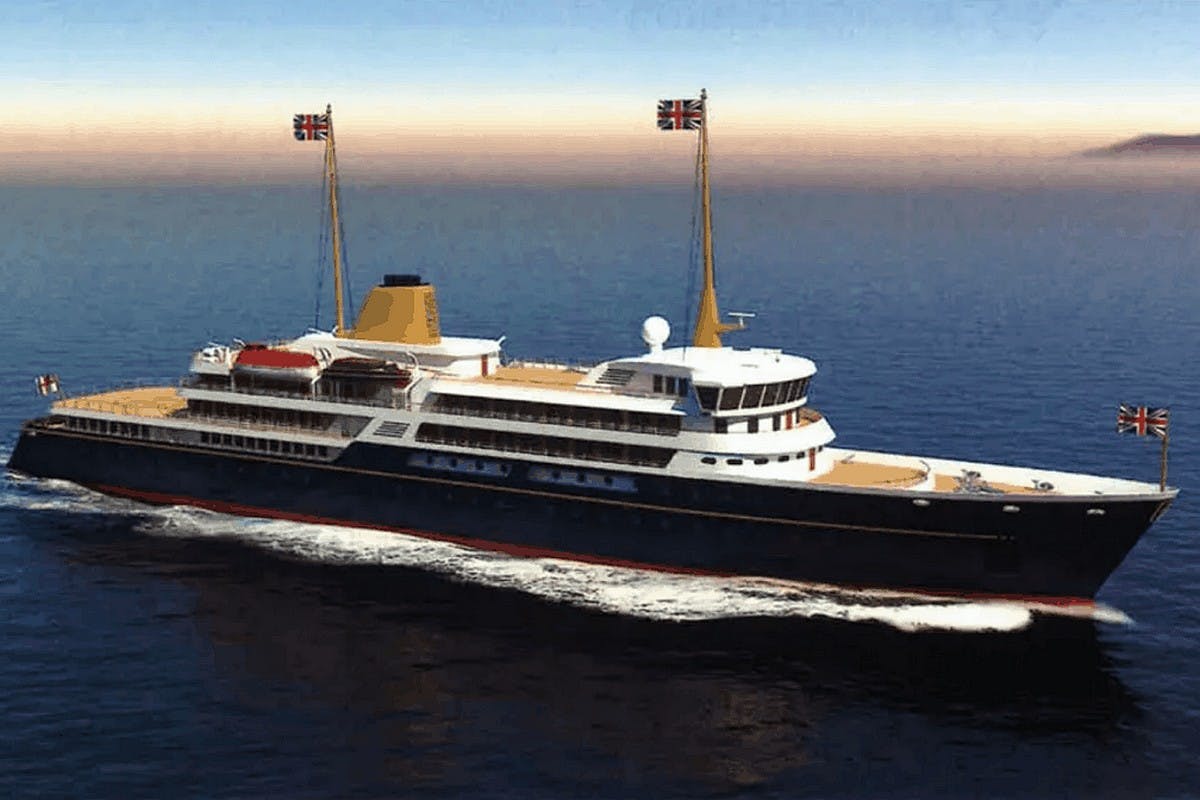
In short, the UK Government’s ‘Global Britain’ aims are going to be hard to achieve in the current world climate. Political willingness, public backing, diplomatic and military presence and a more vocal and overt foreign office presence in the media is necessary to make it work. HMS Queen Elizabeth’s deployment will help this, as will the plans for the new national flagship. Hopefully the G7 Summit will establish partnerships for the UK to pursue these goals – only time will tell.


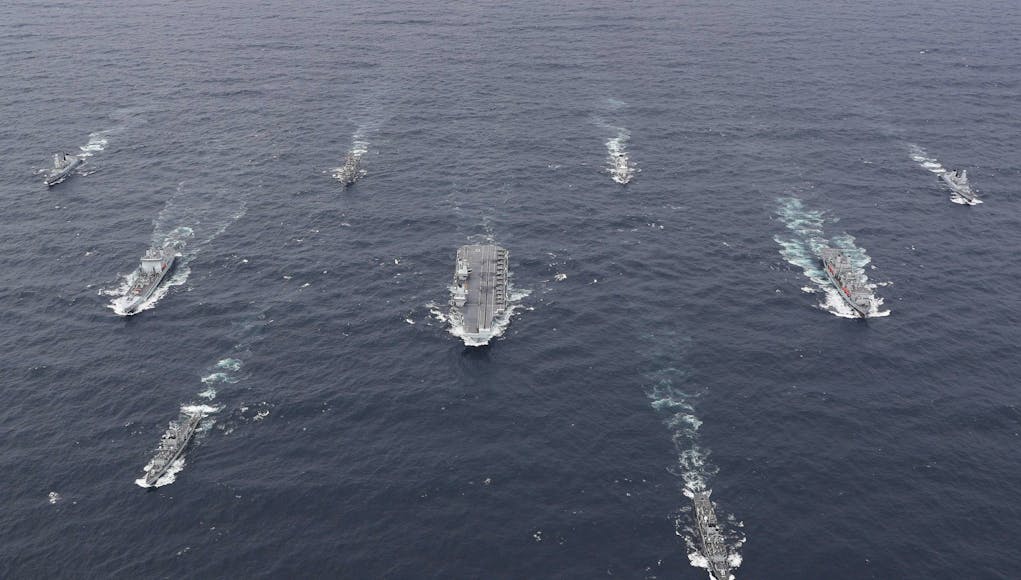
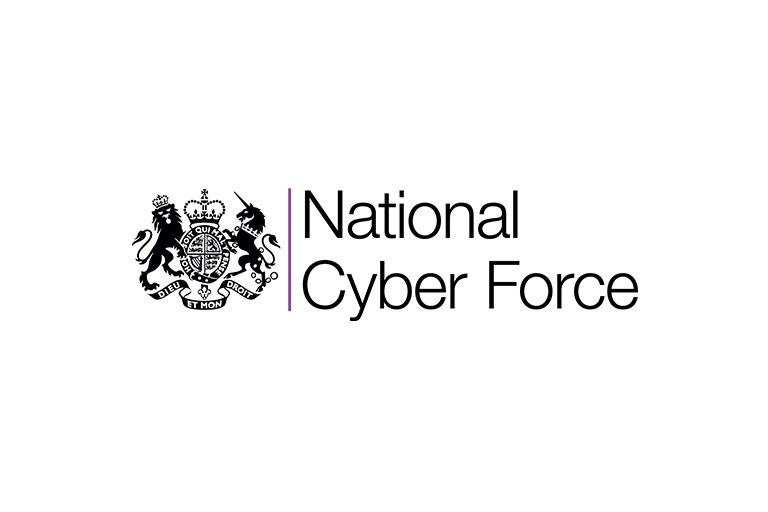
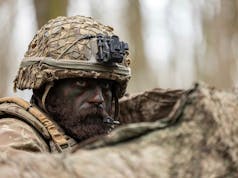

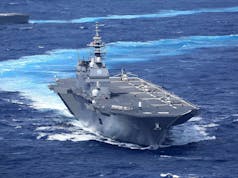
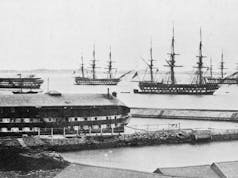


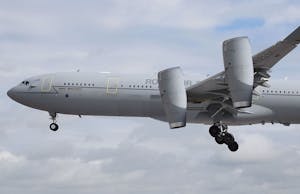









Thought provoking. However for a country that cannot even care for or protect its veterans, or care adequately for large sections of society, it is all a bit pie in the sky. Add to that the country is bankrupt, has deep social divisions, and may not exist in its present form very soon, and the reality does not match the hype.
The new “royal yacht” gives a clear signal to many, they have been forgotten about.
It will not end well.
Karl, what do you think will not be delivered – the ‘extra’ frigates or the fancy yacht? Boris and Rishi seem unconcerned at the financial state of the country and pledged more money for Defence and committed to building HS2, doing Heathrow expansion etc. They will just borrow or print more money. I think all that is said in the article will happen. Although I think we should have a maritime-centric posture, I bemoan the emasculation of the army that I served in for 34 years; it will be difficult to impossible to deploy a strong division with a NSE… Read more »
Graham do you have any idea why the army has been so poor at arguing its corner for funding? Also whilst it is understandable that attention was focused on operations in Iraq and Afganistan, surely it was someones job to keep an eye on the future and the equipment that needed to be replaced The lack of attention to this key item appears to underly need to reduce headcount so as to make room in the budget for equipment. I am not saying that is the only thing wrong, but to an outsider like me, this issue is obvious
It’s a really good question. Part of the answer is as you say, an overwhelming focus on operations in Iraq (2003-2011) and Afghan (2001-2014) and the delivery of Special-To-Theatre equipment under UOR programmes. Core programmes, in contrast, were starved of funding and constantly slipped to the right, to smooth overall spend profiles. There was a perception by Ministers and influential politicians that ‘heavy metal’ projects were reminiscent of the Cold War and that had ended in 1991; the drawdown of BAOR in Germany (originally a Corps of 4 armoured divisions plus a brigade in Berlin) was relentless from 1982 onwards… Read more »
I totally agree with your statement!
Stretching a military reduced to the bone is the most disingenuous thing ever! The enemies and rivals are aware of fully! They study day and night our weaknesses
Really interesting read Graham. Thank you.
The Army’s capbadge obsession is one root of it in my view. (Which is a huge shame as its also the root of its combat effectiveness at the sharp end). It not only consumes vast energy (and resource) that could be more productively put elsewhere, but it stovepipes thinking as each badge thinks only of its own needs. Throw in a distrist of technical experts because the Officer culture is one of generalist “leaders” and the deeply unpleasant effects on the organisational cultutre and practices from the OJAR based promotion cycles, and the mess its in starts to seem inevitable.… Read more »
I think the reality is that there will be serious defence cuts because the wish list is just pie in the sky. I agree about the army, was green myself. Lets be honest, a Falklands operation would now be impossible. And they are the ones which pop up historically.
Sadly government and Daily Mail readers have their heads stuck around Britannia rules the waves whist ignoring reality.
As for the green machine? It will be busy domestically policing the inevitable unrest thats coming.
“Global Britain” risks getting us involved in conflicts that are essentially unwinnable. When the Commons voted against deploying ground forces in Syria, David Cameron said ” I get it.” I’m not sure Boris with his careless flamboyance does. It is much easier to start a war than end it. Despite the courage of the troops involved, the performance of the British Army in Iraq 2 and Afghanistan was not impressive. Numbers were far too small for the tasks allotted and restrictive rules of engagement limited the use of superior weaponry. The army is now even smaller and facing serious problems… Read more »
Peter, I have heard criticism of the British Army’s performance in Iraq and Afghan before – it is nearly all from senior US officers who did not seem to understand that the remit in both Theatres included enabling transitioning to Host Nation primacy for security and defence affairs – and did not accept that there was another way to operate other than the ‘gung ho’, fully agressive posture. US forces often do not do ‘subtlety’, deception, negotiation, and deal-making. Having said that, we had too few troops on the ground, and not enough helos. In Helmand, the size of Wales,… Read more »